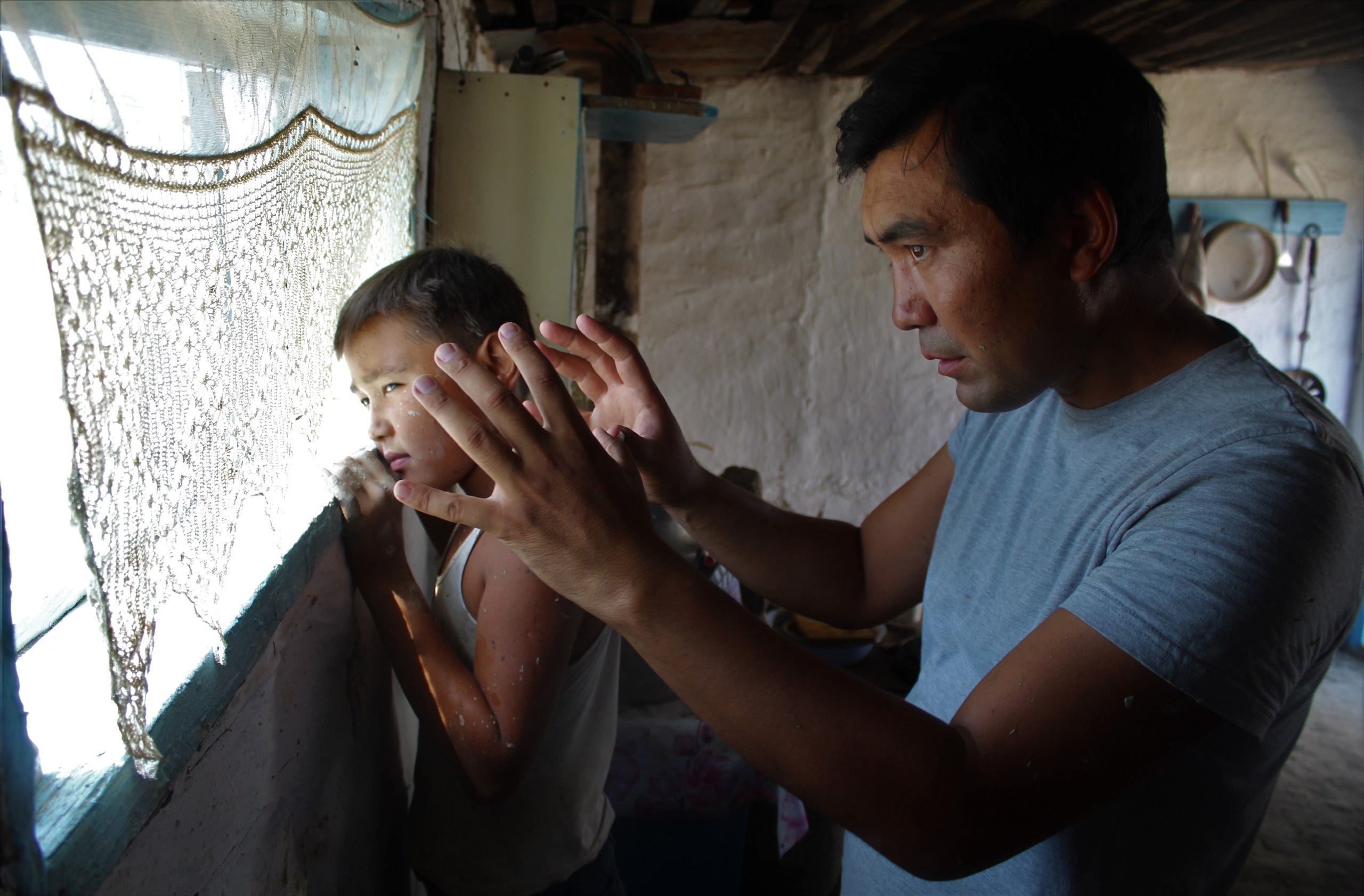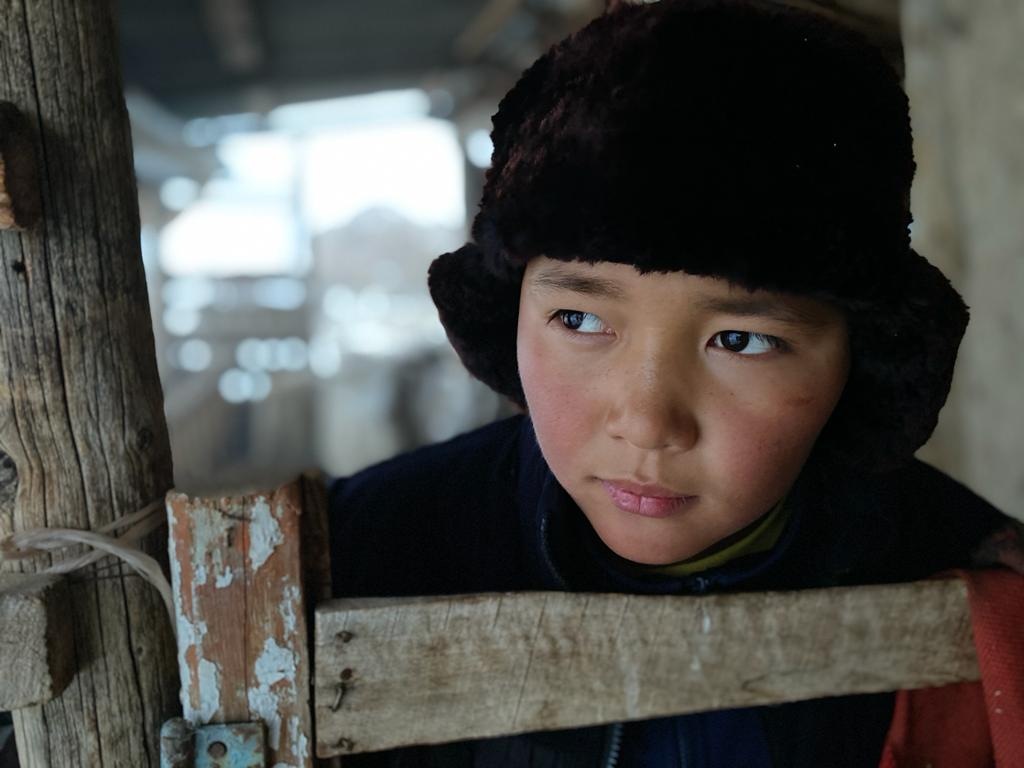ASTANA – Kazakh director Askhat Kuchinchirekov’s debut film “Bauryna Salu” (Adoption) has been selected to compete in the New Directors category of the 71st edition of the San Sebastián film festival, set to take place on Sept. 22-30 in Spain.

Director Askhat Kuchinchirekov worked for three years on his debut film starring Yersultan Yermakov. Photo credit: kazakhcinema.kz.
Starring young actor Yersultan Yermanov, Kuchinchirekov’s film was shot in Kuigan and Tuyyk villages in the Almaty Region. The director worked for three years on his debut film.
It tells a story of a young boy Arman, who was given at birth to his grandmother for upbringing, according to an old Kazakh tradition “bauryna salu.” This is a common practice for the first child in young families.
As Arman grows older, his relationship with his parents remains strained and he feels resentment toward them. When he turns 12, his grandmother passes away, forcing him to rejoin the family he hardly knows.
“Arman’s coming of age process coincides with an unbearable transformation and an attempt to restore the relationship between him and his parents, especially his father,” reads the film’s synopsis.
The director’s personal story
The film’s plot draws from Kuchinchirekov’s personal story.

Young actor Yersultan Yermanov had the challenging role of embodying Arman’s complex character. Photo credit: kazakhcinema.kz.
“I was given to my father’s parents when I was just over a year old. The family was about to have a second child and my mother was probably afraid that she would not be able to cope with a baby boy, and then the old people from the village of Pavlodar who came to visit me remembered this tradition – bauryna salu – and took me to the village,” said Kuchinchirekov in his recent interview with Kazakhstanskaya pravda newspaper.
“I went back to my parents for the first time when I was 16. My grandfather had died and I had to leave my grandmother temporarily while she was handling the move to the city. Those few weeks were the most painful of my life. It felt like it was a prolonged guest visit. Luckily, we were soon reunited with my grandmother and were together until her death. The dearest person to me died next to me and my wife,” he said.
Kuchinchirekov is no stranger to the film industry. He acted in “Tulpan” (Tulip) by Sergey Dvortsevoy, which won top honors in the Un Certain Regard category at the Cannes Film Festival in 2008. He also assisted Dvortsevoy in directing “Ayka,” a film that competed for the Palme d’Or at the 71st Cannes Film Festival. These experiences helped shape him as a director and screenwriter. “I felt as if I’d been preparing to shoot this story my whole life. When I came back, I already had the script of ‘Bauyryna Salu’ ready,” Kuchinchirekov said.
Roots and implications of ‘bauryna salu’ traditon
Before embarking on such a challenging topic, the director conducted extensive research, talking to dozens of people who were raised by grandparents while having living parents.
According to Kuchinchirekov, the custom is not on the decline and surprisingly has not adapted to fit the needs of the modern world.
“The tradition of giving a child to the family of elderly parents or childless relatives goes back to ancient times, to nomadic periods. And what is surprising is that it has not transformed in any way to fit modern life, unlike, for example, bride kidnapping,” said Kuchinchireko.
Regardless of how the tradition is perceived, it is hard to draw a line between what is outdated and what plays a role in preserving Kazakh culture.
“Some people think that ‘bauryna salu’ is also outdated, but it is not so. This tradition was, is and probably will persist for many Kazakh families for the foreseeable future,” he said.
Although the practice has its shortcomings, it can also be seen as a vehicle for maintaining cultural tradition.
“Since ‘bauyryna salu’ is one of the aspects of our unique culture, we should not give it up,” Kuchinchireko said.
“The only bad thing is that children who grew up in the families of grandparents are very vulnerable because of the realization that their parents voluntarily gave up on them. But if this tradition ceases, our society will become even more divided,” he added.
Kuchinchirekov views this custom as a cultural hallmark that exemplifies the uniqueness of the Kazakh nation.
“That is why I perceive the tradition of ‘bauryna salu’ as a code of the nation. If we abandon such ‘zest’ that every nation has, the world will turn into one big corporation with one language and culture, and I don’t want that,” he said.
The lead young actor’s story
Yersultan Yermanov, the young lead actor, had the challenging role of embodying Arman’s complex character. Kuchinchirekov was looking for someone whose eyes would show sadness and the depth of thought of a child who had to mature early. After a thorough search, he found the perfect candidate on a TV program.
“According to their [Cannes] reviews, it’s as if there’s no acting there – the boy’s extraordinary eyes say more about this side of Kazakh life than any words,” said Kuchinchirekov about Yermanov.
Perhaps that’s because Yermanov has unexpected similarities to the story of his character – he too is the son of a struggling Kazakh family that returned to their ancestral homeland from Uzbekistan approximately 30 years ago.
It was a tumultuous time for his family – not only were his parents struggling to make a new life for themselves in a new country, but all their documents were lost in a fire and his mother managed to obtain a passport and the status of a Kazakh citizen only last year.
“Now the mother and her four sons, one of whom has cerebral palsy, live on the Talgar highway not even in a temporary house, but in a container adapted for housing. They are without a father. The mother works as a cook in roadside restaurants, and Yersultan also contributes by working part-time,” said Kuchinchirekov. He hopes that Yermanov’s role in the film may offer some uplift to his family’s challenging circumstances.

